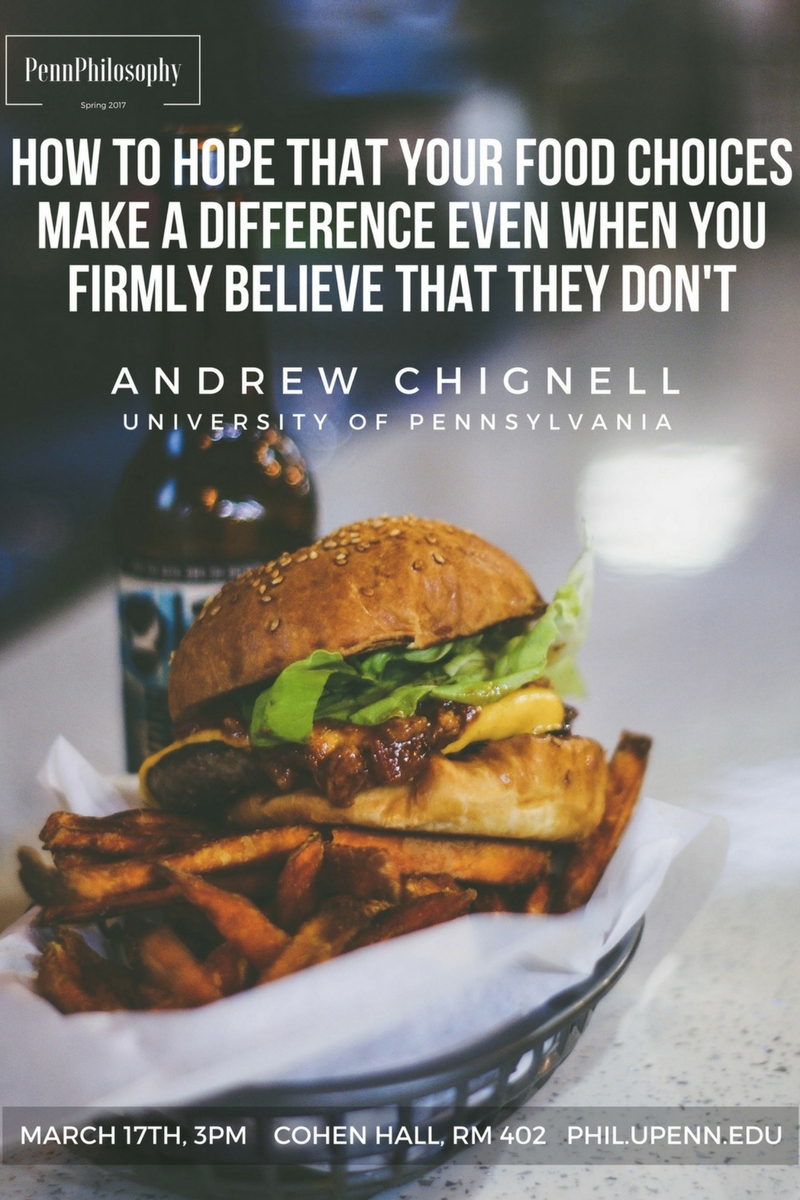Cohen Hall, Room 402

Most religions advocate dietary regulations of some sort: Muslims fast during Ramadan, Jews follow kashrut laws, Catholics avoid meat on Fridays, many Hindus don’t eat beef, and some Buddhists and Jains avoid meat altogether. Such practices foster a sense of communal identity, but traditionally they are also regarded as pleasing to God (the gods, the ancestors, etc.) and spiritually beneficial. In other words, for many religious people, the effects of fasting go well beyond what is immediately observed or empirically measurable. That is often a large part of what motivates participation in the practice.
In this talk I focus less on particular religions or doctrines and more on what we might think of as a broadly religious approach to dietary regulation. The goal is to suggest ways in which this approach might be developed into a response to moral-psychological problems that arise from our awareness of the vastness and insensitivity of contemporary food supply chains. If someone can have (what Kant would call) rational faith, or even a certain kind of motivation-sustaining hope, that the significance of her individual food choices goes well beyond what is immediately observed or empirically measurable, then she may be less demoralized by the apparent inefficacy of those choices. I conclude by developing ways in which this broadly religious approach to inefficacy problems might be available in secular contexts as well.

 Department of Philosophy
Department of Philosophy